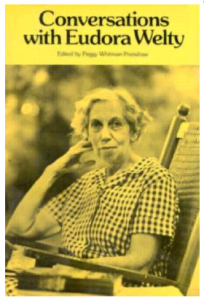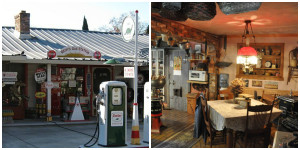 Jay Leno has commented a number of times in interviews that it’s important for stand-up comedians to continue their stand-up work even when they no longer have to. Getting in front of a small live audience is a valuable experience, because it keeps you sharp and provides an opportunity to understand what people like and don’t like about your work.
Jay Leno has commented a number of times in interviews that it’s important for stand-up comedians to continue their stand-up work even when they no longer have to. Getting in front of a small live audience is a valuable experience, because it keeps you sharp and provides an opportunity to understand what people like and don’t like about your work.
My books were published last year and I’m new to book marketing, but I’ve noticed that Jay Leno’s advice also applies to authors. The more I talk to readers about my books at events, the more I learn what they enjoy about my writing. It’s information I don’t get in a book review or an email. It’s real, instinctual feedback that they provide with their words, facial expressions, laughter, applause, and physical energy.
Last night at an event where I was one of five authors on a panel, I introduced new information about the way I write and discovered more than I could have imagined. This is what I shared:
- My stories will always have a strong sense of place. The story’s location will be one of the characters. I want readers to connect to the story’s location via their senses, e.g., smell, touch, sight, etc. This comes from my love of travel.
- I write fiction to communicate an idea. My book THE MEDIUM communicates: it’s comforting and healing to connect with someone you love on the Other Side. My book THE HERMIT BOOKSTORE communicates: there’s no such thing as a coincidence.
- My story ideas and themes date back to my childhood when I first became interested in things most people can’t explain. For example,
- when you walk into a room and can feel that something is wrong
- a feeling of deja vu when you travel to a place you’ve never been but it feels familiar
- receiving a sign from or connecting with someone on the Other Side
- feeling the influence of a full moon
- a coincidence that doesn’t feel like a coincidence, either when it happens or a few months later when you’re thinking about it
- I refer to these events as “mysteries of the human experience”. We feel them. We experience them. We know they happen. But we can’t explain them. My stories will always include these types of events because they are part of being human (whether you notice them or not).
- I think it’s important to write stories about these types of events, because it helps people validate their own experiences.
While sharing this information I learned that readers better understand the types of stories I write, and they enjoy reading about characters who have these experiences. It also adds a bit of mystery to the story, which everyone enjoys.

